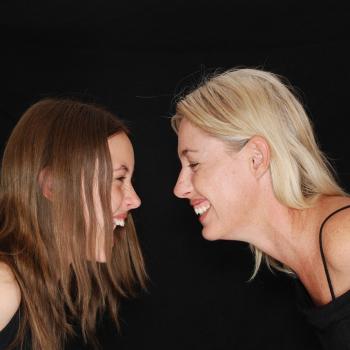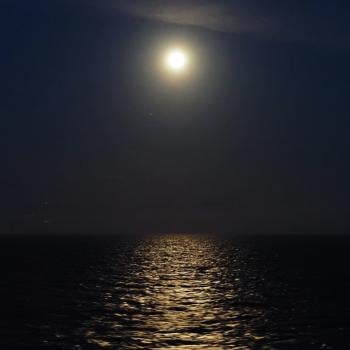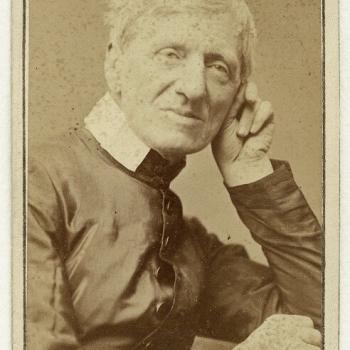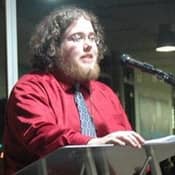"Let the men draw lots."
Such are the first words spoken in the Yule ritual laid down in Janet and Stewart Farrar's AWitches'Bible, the book my parents told me to read when I was about twelve and which I still tend to turn to for inspiration when I am stuck on a ritual of my own. I had forgotten about that particular feature of their ritual, which repeats at Midsummer: the drawing of lots for the role of the kings, Holly and Oak, the conqueror and the conquered. The question of who will be the defeated Holly King and who will be the triumphant Oak King is determined by nothing more than chance.
Chance, or if you prefer, fate—it's funny how one can so easily be mistaken for the other.
I happened to draw the lot of being born to Pagans. I honestly did not realize how strange a fate that was until I was almost twenty. When I was young, of course, I had little idea of what my life looked like from the outside; children raised in the circus probably don't think there's anything unusual about that life, either. And when I was a teenager, I happened to be in an environment that tended to select for freaks of one sort or another. While I recognized that my life was strange, everybody I knew was just as strange—or stranger!—and so I still felt quite normal by comparison. Besides, I was still living with my parents, still going to sabbats and Full Moon rituals, still seeing others my age in my Pagan family; the rhythm of my life was the same as it always had been.
But college finished off that notion. I spent four years living in Kirksville, a small town in rural Missouri. I realized within the first week of moving there that I had been living in a statistically skewed universe for the first eighteen years of my life. In 2004, my surroundings suddenly regressed to the norm.
As an example of what I mean, during that first semester I once arrived early to a friend's apartment for a nerd party. (I only went to nerd parties then. To be honest, I still only go to nerd parties.) I walked in and found that half of the people I expected to be at the party had already arrived—because they were having Bible Study.
I scrunched into a squishy chair in the corner of the room and tried to make myself invisible while I listened to them talk about the verse in question and their digressions from the point. I realized, sitting there silently, that I had never actually seen people in the midst of a Bible study before, that I had only ever been close to a handful of people who had even participated in such a thing. And everyone in that room was someone whom I saw at least once a week, someone I thought I knew fairly well. I had never pictured them doing this; it seemed, indeed, unthinkable that I could be friends with anyone who would.
And at that moment, I realized that I was the weird one, that my friends were engaging in, at least from the standards of a Midwestern background, completely normal behavior. It just happened to be a sort of behavior to which, due to my upbringing—to my lot in life—I had never been exposed.
My friends finished their discussion right on time, just a few minutes before the rest of our gang of hoodlums arrived. I said nothing to them about what I felt in that moment; I was too shocked by how shocked I was.
These little surprises, these places where I find tiny gaps between the rest of the world and my own experiences, remain the defining features of my life as a child of Paganism. The things my non-Pagan friends take for granted remain bizarre to me—not the least of which is the ability to freely and unselfconsciously talk about what they plan to do at church that weekend. Theirs is a world I have never known, a mystery all the greater for being ever-present.
I don't know what my life would have been like had I been born into some other religion, or perhaps no religion at all. I don't know what it would be like to have more people believing as I do, or what it would be like to observe a strict doctrine. These things are not a part of my heritage.
Instead my lot is to be eccentric and accepting, all-believing and all-doubting, to be apart from society and a part of the world. It is my lot to worship the ancient and embrace the new, to absorb and evolve, to inherit, and to someday pass on. It is my lot to chart a path, again and again, along the eight spokes of a sacred wheel—each year like every other, unlike any other that has come before.
This is my lot; this is the gift my parents have given me. Every year I realize more how strange a gift is; and every year, I realize how much more grateful I am to have received it.
Happy Yule.
12/2/2022 9:03:17 PM





